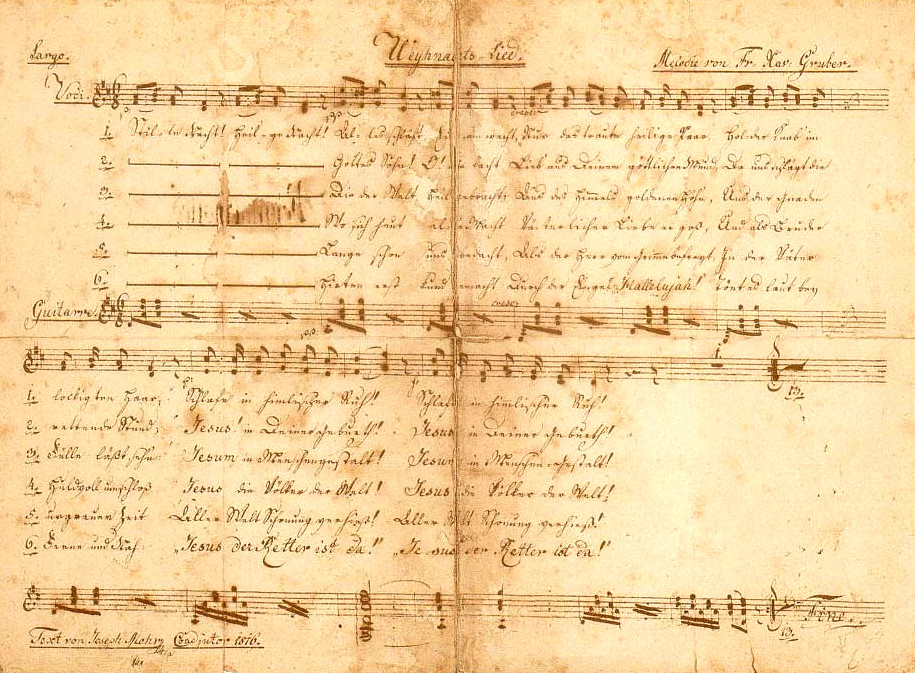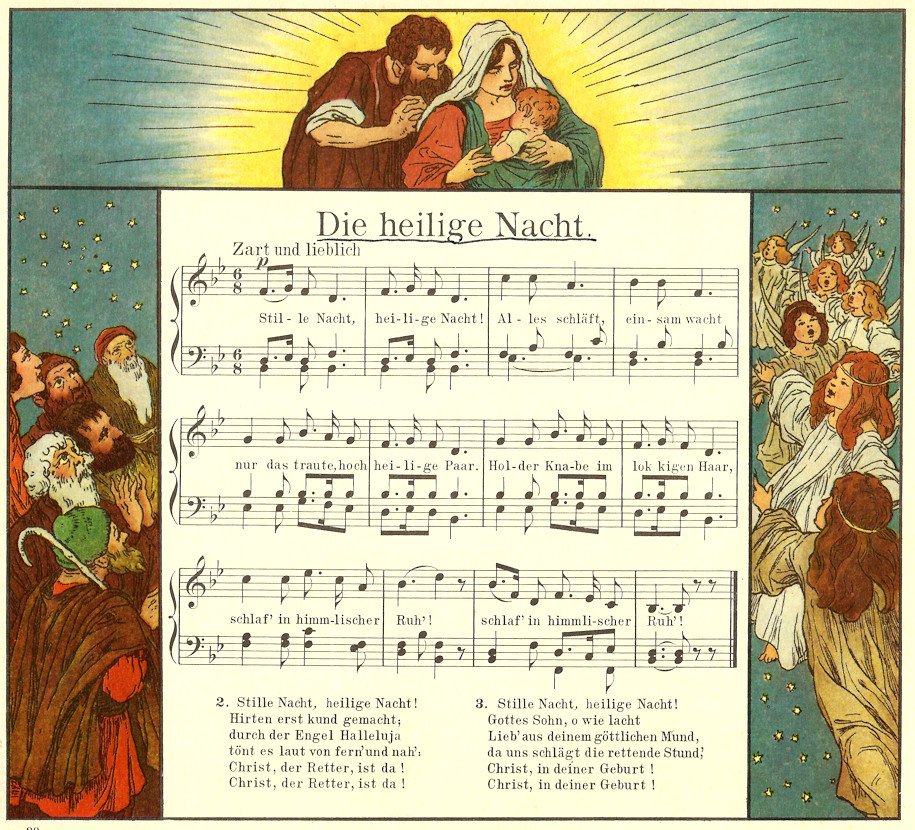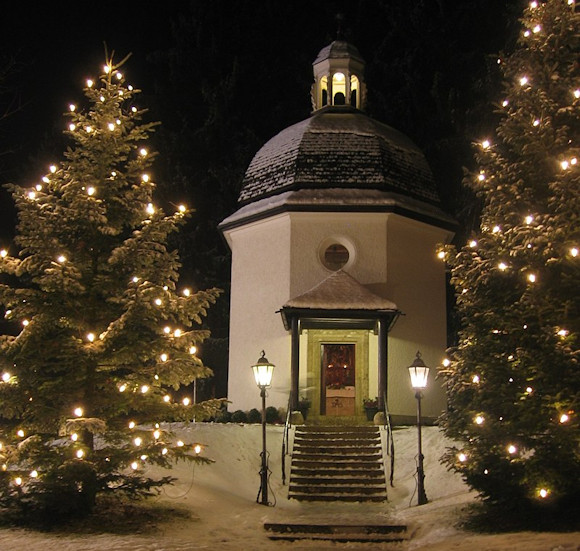The story of a world-famous song (with curly hair!)
Imagine you’re a schoolteacher on your end of term break. You’ve just finished your breakfast on Christmas Eve in the year 1818 when there’s a panicked rap on the door.
Bleary-eyed, you open the door to the local young priest who is clutching a piece of paper. “We have a major problem “ he blurts.
So you invite him in and pacing up and down eventually says. “Franz, You can’t play the organ at midnight mass tonight. The river burst its banks last night and although the flood has subsided from the church - the organ is completely ruined.”
The story of a world-famous song (with curly hair!)
Imagine you’re a schoolteacher on your end of term break. You’ve just finished your breakfast on Christmas Eve in the year 1818 when there’s a panicked rap on the door. Bleary-eyed, you open the door to the local young priest who is clutching a piece of paper. “We have a major problem “ he blurts. So you invite him in and pacing up and down eventually says. “Franz, You can’t play the organ at midnight mass tonight. The river burst its banks last night and although the flood has subsided from the church - the organ is completely ruined.”
You invite him to sit at the table and he slides the piece of paper over to you. The priest fixes his eyes on you and says. “This is a poem I wrote two years ago. Could you please set it to music for mass tonight and I’ll bring my guitar and play along.”
So you oblige taking the poem and compose the melody. The song is simple enough and is sung at midnight mass that same day.
Some time later the organ builder comes to repair the organ and takes a copy of the six-verse song back to his home village. This song is picked up by two families of travelling folk singers. In 1834 the Strasser family perform it to the King of Prussia. And in 1839 the Rainer family sing it outside Trinity Church, New York City.
The song continues to spread and is translated into hundreds of languages. It is even sung simultaneously in English, French and German on Christmas Eve during a moment of truce on the battlefield in World War I.
By now you might have guessed the song was ‘Stille Nacht’ (Silent Night). The young priest who wrote the words was Joseph Mohr and the teacher and choirmaster who wrote the melody was Franz Gruber. The church with the broken organ where it was first sung on Christmas Eve 1818 was St Nicholas Church in the village of Oberndorf, Austria.
 Stille Nacht original Text und Autograph Joseph Mohr; Melodie: Franz X. Gruber
Stille Nacht original Text und Autograph Joseph Mohr; Melodie: Franz X. Gruber
Notice how the original is in 6/8 time and the melody we sing nowadays has evolved towards the style of a typical slow Austrian ländler (a slow waltz) even a lullaby.
Some of you may know that my mother is German and we followed the german tradition of giving out presents on Christmas Eve. However, not before we gathered around the home organ and sang some carols from 'Unser Liederbuch' (Our Songbook) - in German of course! My mother gifted the book to Carol and here is one of the beautifully illustrated pages...
 A page out of our beautifully illustrated 'Unser Liederbuch' (Our Songbook)
A page out of our beautifully illustrated 'Unser Liederbuch' (Our Songbook)
It has only recently struck me how inaccurate the english words are. For example 'Holder Knabe im lockigen Haar' in the first verse literally means 'Handsome boy with curly hair'.
So I suggested we learn it in German - Here's a recording of it after three rehearsals...

